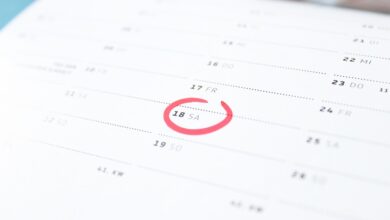
There’s no denying that in today’s fast-paced world, the pursuit of work-life balance can be a challenging one. With the demands of career, family, social commitments, and personal pursuits, it’s easy to feel overwhelmed and stretched thin. However, with the help of a planner, achieving the perfect harmony between work and life can become a feasible and sustainable goal.
A planner is a tool that can assist in organizing and structuring one’s time, helping to prioritize and manage multiple commitments. It can act as a compass, guiding individuals towards creating a balanced and fulfilling life. When used effectively, a planner can help to reduce stress, increase productivity, and create more time for personal interests and relationships.
At its core, achieving work-life balance is about mindful time management and prioritization. A planner allows individuals to set and track their goals, helping them to stay focused and on track amidst the chaos of daily life. By scheduling work and personal commitments, individuals can ensure that they are dedicating time to all facets of their lives, be it career, family, health, or leisure pursuits.
Work-life balance is not about dividing time equally between work and personal life, but rather about finding a harmonious integration of the two. A planner can aid in this integration by helping individuals identify their core values and priorities, and then aligning their time and energy accordingly. This approach allows for the recognition and nurturing of all facets of life, rather than allowing work to overshadow personal pursuits and relationships.
In the professional realm, a planner can be an invaluable tool for managing work commitments, deadlines, and tasks. It can assist in setting realistic goals and expectations, ensuring that individuals are not overextending themselves and are maintaining a healthy work pace. By scheduling and allocating time for work-related activities, individuals can better manage their workload and avoid the stress of last-minute rushes.
Furthermore, a planner can aid in the effective delegation of tasks and responsibilities, allowing individuals to focus on high-priority work while efficiently managing the rest. With a clear overview of their professional commitments, individuals can make informed decisions about how to best allocate their time and resources, thus enhancing their productivity and performance.
On the personal front, a planner can play a crucial role in nurturing relationships, pursuing hobbies, and maintaining overall well-being. By scheduling time for family, friends, and self-care activities, individuals can ensure that they are not neglecting the important personal aspects of their lives. This proactive approach helps to create the space for meaningful interactions and moments of relaxation, thus enriching one’s personal life.
Additionally, a planner can aid in the pursuit of personal goals and aspirations, be it fitness, travel, or creative pursuits. By setting aside dedicated time for these activities, individuals can make consistent progress towards their personal goals, leading to a greater sense of fulfillment and satisfaction.
In essence, a planner empowers individuals to take control of their time and align it with their priorities, thus fostering a sense of balance and contentment in their lives. Its role in facilitating work-life balance cannot be underestimated, as it acts as a constant reminder of the need to maintain equilibrium between professional and personal spheres.
To truly harness the benefits of a planner for achieving work-life balance, several strategies can be implemented. Firstly, individuals should make a habit of regularly reviewing and updating their planner, ensuring that it remains an accurate and relevant reflection of their commitments and aspirations. This practice allows for the continuous alignment of time with priorities, thus aiding in the pursuit of balance.
Moreover, individuals should take a proactive approach to scheduling their time, ensuring that they are allocating adequate time to all facets of their lives. This may involve setting boundaries around work hours, prioritizing personal time, and being assertive about time commitments. By taking charge of their schedules, individuals can make deliberate choices about how they spend their time, thus fostering a sense of control and balance.
Flexibility is also essential in the pursuit of work-life balance, and a planner can accommodate this need. While it can act as a guide for structuring one’s time, it should also allow for spontaneity and adaptation. Individuals should feel empowered to make adjustments to their plans as needed, allowing for the ebb and flow of life without inducing unnecessary stress.
Lastly, individuals should seek to utilize their planner as a tool for self-reflection and growth. By regularly reviewing their schedules and activities, they can gain insights into their habits, priorities, and areas for improvement. This self-awareness can aid in the continual refinement of one’s approach to work-life balance, ultimately leading to a more fulfilling and meaningful life.
In conclusion, achieving work-life balance is a perennial pursuit for many in today’s society, yet it is a goal that can be attained with the aid of a planner. By effectively managing and prioritizing one’s time, individuals can find harmony between professional and personal commitments, leading to reduced stress and increased satisfaction. A planner serves as a guiding tool in this journey, facilitating mindful time management and integration of all facets of life. With its assistance, individuals can nurture their careers, relationships, and personal pursuits in a manner that is both fulfilling and sustainable.





